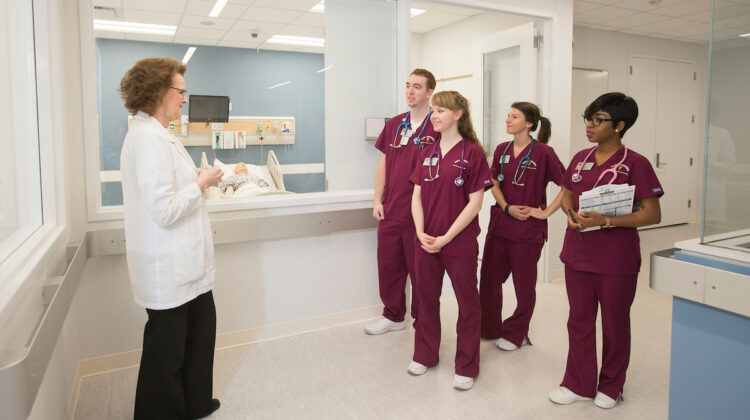In a time when health care workers are in high demand, The Mid-America Transplant Foundation (MAT) is launching the MAT Scholarship for students enrolled in Missouri State University’s nursing program.
“We are humbled and honored at the gracious gift given to our students from MAT,” Monika Feeney, Department Head for the School of Nursing, said. “This scholarship will raise awareness for organ donation in the community by enabling nursing students to learn about organ donation and the importance of it to our community.”
This gift is in recognition of the critical role nurses play in the organ and tissue donation process in Southwest Missouri.
In 2021, Springfield hospitals supported patients and their families who wanted to save and heal lives through organ, tissue, and eye donation. These patients become donor heroes who saved 134 lives through organ donation and impacted up to 20,000 lives through the donation of eyes, skin, tendons, ligaments, heart valves and bone.
Applying for scholarship
Ten scholarships at $1,000 each will be given to qualified applicants beginning with the 2023-24 academic year. The scholarship is part of the MAT Foundation’s focus on workforce development.
Nursing students interested in applying must submit an essay. The essay must include:
- A discussion of organ donation.
- The role nurses play in the organ donor process, including the impact of grief on donor families.
- The role that MAT plays in southwest Missouri communities.
Scholarship recipients will travel to St. Louis to receive a tour of MAT facilities.

